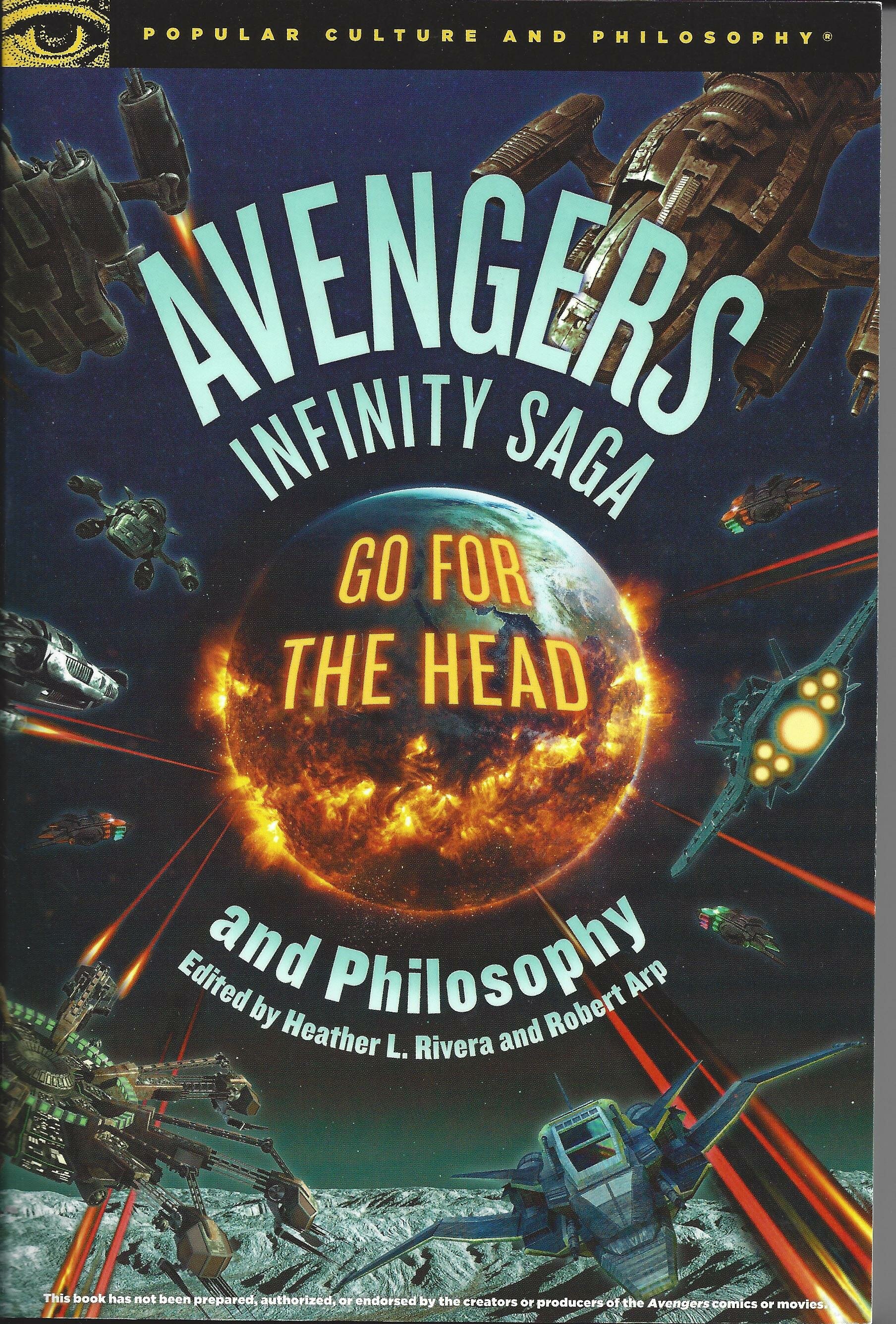Avengers Infinity Saga and Philosophy is a collection of philosophy essays seeking to use Avengers: Infinity War and Avengers: Endgame to present various philosophical ideas. For example, the multiverse theory means that those who use the likely consequences of their actions to determine the right thing do to are paralyzed, while those with a clear moral structure can still act decisively. There are more than thirty essays in Avengers Infinity Saga and Philosophy, so there’s literally something for everyone. (Including those who agree with Thanos’ doomer worldview or literally see him as the hero.)
Disclaimer: I received an advanced copy of Avengers Infinity Saga and Philosophy from the publisher in exchange for a review.
The first four essays discuss the ethical issues that arise with the Snap, the post-Snap world and the ethics of reversing it. How does such a collective trauma affect the grieving? Is it moral to return the lost, given the disruption it creates?
The next essays explore the issues and logic around the MCU’s use of time travel. How can you explain Nebula’s ability to kill her earlier self? (One author suggests the concept of relative timelines.) And what are the MCU’s rules on time travel, anyway?
Chapter 9 presents the conflicting ethical worldviews of Tony Stark versus Steve Rogers and argues that Steve Rogers is right. Chapter 10 compares the arcs of Natasha and Gamora and the Soul Stone.
Chapter 11 tries to determine the ethics of killing half the universe. It uses totalism, averagism and person-affecting view. Fortunately, it decides mass murder is never justified.
Chapter 12 asks, “What is sacrifice?” It also brings up multiple traditions of sacrifice, all of which require literal or symbolic blood. Chapter 13 uses “Avengers: Endgame” to explain the concept of adductive reasoning.
Chapter 14 theorizes that Thanos is operating out of a warrior culture, so his actions are justifiable in his own mind. Chapter 15 looks at Loki and humor in the Infinity Saga. Chapter 16 discusses the four main philosophies of death. Chapter 17 is the first environmentalist doomer essay. Chapter 30 shares the same doomer mindset before invoking Socrates’ definition of a good life to ask us to give up quality of life to “save the world”.
Chapter 18 is an analysis of Ton Stark’s choice to die. Chapter 19 compares Abraham’s sacrifice of Isaac to Thanos’ sacrifice of Gamora. Chapter 20 tries to argue that Thanos was the hero of the Avengers Infinity Saga. I’ve read elsewhere how “Infinity War” is a perfect hero’s journey if you consider Thanos the hero.
Chapter 21 compares the MCU comics with the Avengers movies. Chapter 22 compares Thanos to Daenerys Targaryen in Game of Thrones. Chapter 23 tries to say that Thanos is an example of “the road to hell is paved with good intentions”, that he was morally right but did the wrong thing for good reasons, at least in the movie.
Chapter 24 analyzes the dueling “I am” statements in the Avengers by the central good and evil characters. Chapter 25 explains why Thanos is such a good villain. It also takes a look at the same themes behind the other major Avengers villain, Ultron. Chapter 26 says Thanos is a hero if you ascribe to Nietzsche’s philosophy.
Chapter 27 says Thanos is literally the God of Death. Chapter 28 discusses what made Steve Rogers literally good enough to wield Mjolnir. Chapter 29 looks at the life and death of Tony Stark. Chapter 31 asks if Hulk has a soul.
So what did I think of the book? “Avengers Infinity Saga and Philosophy: Go for the Head” is an excellent book for those who want to look at this cinematic masterpiece and rich story through various philosophical lenses.



Comments
Leave a Reply